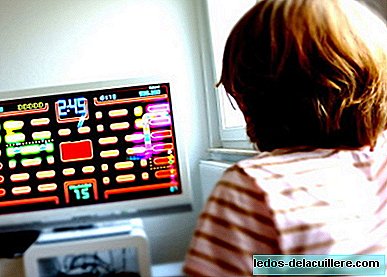
A group of researchers and professors from the University of Zaragoza are carrying out a research project to evaluate the benefits of use of active videogames and gamification strategies in classrooms.
The use of this type of videogames is something new in schools. And although some similar experiments have been performed, it seems that there is hardly any scientific research to prove its benefits, so, according to their promoters, this would be one of the first investigations of this kind that are carried out internationally.
What did the experiment consist of?
An interdisciplinary team of researchers, experts in physical education, body expression and neuroscience, have developed a didactic unit of active videogames and gamification strategies which has been tested for a month and a half in several schools in Zaragoza and Huesca.
To do this, students have been divided into two groups: on the one hand, students who have followed the case in a conventional manner, and on the other, those who have done so through the use of video games in the classroom.
To promote physical exercise and dance Active video games have been used (those in which the whole body must be moved), such as "Just dance now", a game that encourages students to move around, to desinhibit themselves and to improve different basic physical qualities.
Other video games used have been based on the gamification as a learning technique, as video games of strategies or of both individual and collective challenges.
First conclusions
Though the final conclusions of the study will be taken within a few months, the teachers' responses after asking their opinion about the use of video games in the classroom are very favorable, since all have highlighted the greater degree of involvement of the students, their motivation, autonomy and a greater willingness to learn.
But regardless of the subjective perception of teachers, this research will also serve to see if there has been a change of attitude on the part of the students towards an active digital leisure, if their academic results vary, if there is a different activation of the brain , the degree of fatigue ...
"In the last ten years the application of gamification in the educational field has been increasingly frequent, but without scientific support. Our hypothesis is that Gamification and the use of active video games can lead to major changes in student learning, but we wanted to study it and try it. "
"We believe that the gamification method is applicable to other subjects such as Science or Language. It is about creating different teaching units, perhaps more adjusted to today's society" - states in Heraldo de Aragón, Alejandro Quintas, project member, teacher of Education Physics and professor of Didactics of Physical Education at the Faculty of Human Sciences and Education of Huesca.
The benefits of video games
Much has been written about the use and abuse of video games by children, as well as the negative effects that this can have. However, not everything is dark on this issue, as a rational and supervised use, and a correct choice of video games (Those who encourage learning and promote physical activity) can bring great benefits.
What is clear is that more and more professionals are realizing the benefits it has for children to learn by playing, and more and more schools are incorporating innovative techniques in classrooms with excellent results. Over time we will see if the use of video games in schools can become a reality.
Via Heraldo de Aragón
In Xataka Playing Minecraft in the classroom: this is how building with pixels can help in 21st century education, Kinect as a physical education teacher: Vicent Gadea, innovative teachers, how many hours children should play (and not so children) with video games, according to science
In Babies and More Do you like video games? Playing with your child can be beneficial for him and for your relationship. Game-based learning can make your child succeed in school and beyond. Use and abuse of technology, benefits translate into problems when children they use too much time












